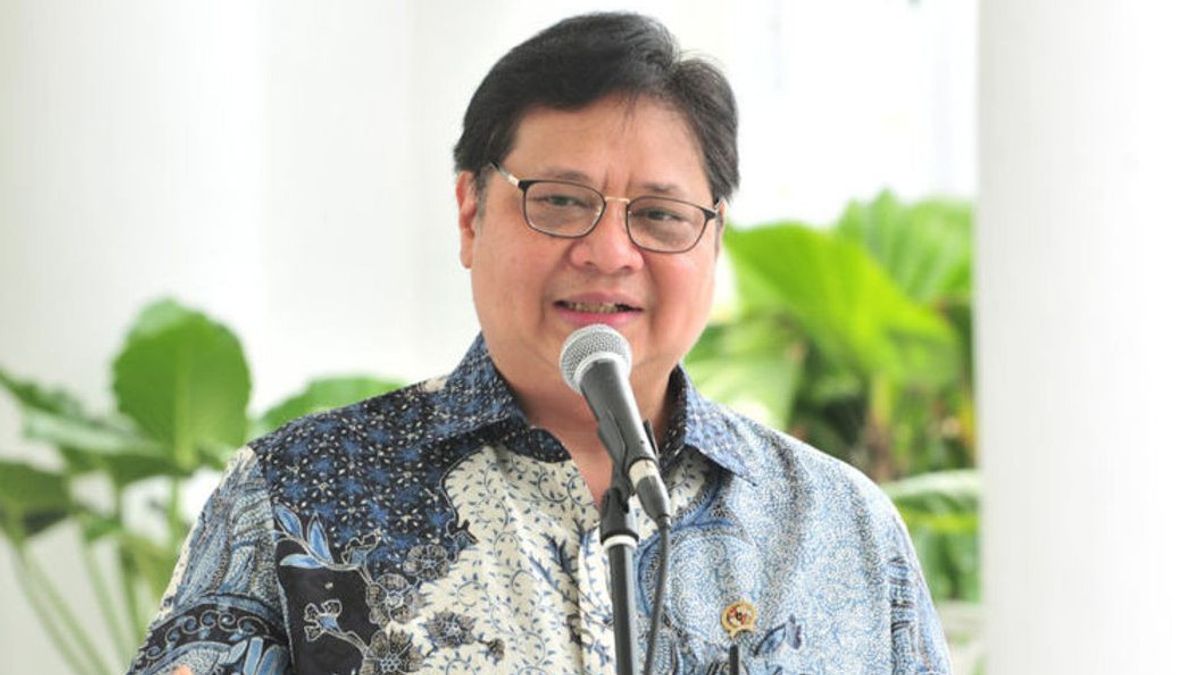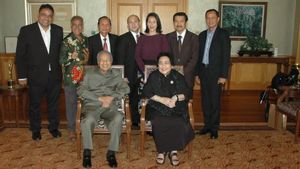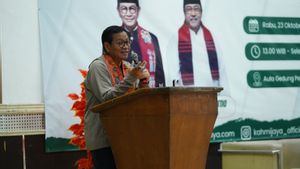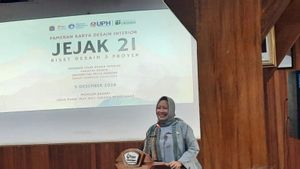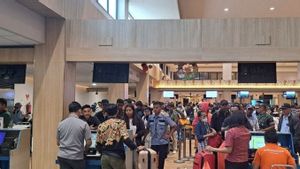JAKARTA - The government will implement The Enforcement of Restrictions on Community Activities (PPKM) policy on micro level in Java and Bali starting Tuesday, February 9. This is to suppress people's mobility.
Is that right? VOI tries to compare the Java-Bali PPKM policy with the Micro PPKM. Based on records, there has been some easing in several sectors.
For example, in the Java-Bali PPKM, 25 percent of the people who work in the office, and 75 percent work from home aka WFH. Meanwhile, in the Micro PPKM, 50 percent of the people who work in the office are from home.
The Coordinating Minister for the Economy Airlangga Hartarto explained that there were a number of changes that had occurred in the application of micro PPKM which were regulated in the Ministry of Home Affairs Instruction Number 03 of 2020 concerning Enforcement of Restrictions on Micro-Based Community Activities and the Establishment of a Covid-19 Handling Command Post to Control the Spread of COVID-19.
"The WFH office limits are 50 percent with strict health protocols. Teaching and learning are still online", said Airlangga in a press conference broadcast on the YouTube account of BNPB Indonesia, Monday, February 8.
Then, the loosening also occurs in the operating hours of malls or shopping centers. This is of course different from the previous policy which states that malls are only allowed to operate until 20.00 pm. Where in the PPKM Mikro mall can be open until 21.00 pm.
"Then the activities of restaurants and malls eat and drink with dine-in about 50 percent", he said.
This 50 percent figure is certainly different from the PPKM policies for stages 1 and 2. At the stage that took place from January 11 to January 25 which was later extended to February 8, the number of visitors to restaurants or malls was limited to 25 percent.
Meanwhile, restrictions on places of worship and closure of public facilities remain in effect when micro-PPKM takes place.
For information, micro-scale PPKM is carried out by considering the criteria for the control zone area up to the Citizens Association (RW) levels. Regions that will implement this micro PPKM are regions in 7 provinces that have implemented PPKM previously. The zoning criteria in question are divided into green zones, yellow zones, orange zones, and red zones.
1. Green zone
Criteria: No house in one Neighborhood Association (RT) has a positive case of COVID-19 in the last 7 days.
Scenarios: active surveillance, all suspects tested, and case monitoring is carried out regularly.
2. Yellow zone
Criteria: there are 1 to 5 houses with positive cases during the last 7 days.
Scenario: find suspected cases and close contact tracing and then requested self-isolation under close supervision.
3. Orange zone
Criteria: there are 6 to 10 houses with positive cases during the last 7 days.
Scenarios: find suspected cases and tracing close contacts and then asked to self-isolate under strict supervision, closing houses of worship, children's play areas, and other public places except for the essential sector.
4. Red zone
Criteria: there are more than 10 houses with positive cases during the last 7 days.
Scenarios: find suspected cases and close contact tracing; perform self-isolation; close houses of worship, children's play areas, and other public places except for the essential sector; prohibits crowds of more than 3 people; limit entry and exit of RT to a maximum of 20.00 pm, and eliminate crowd-generating social activities.
Micro PPKM is carried out through the coordination of all elements, starting from the head of RT/RW, the village head, Satlinmas, Village Guidance Officer (Babinsa), Bhayangkara Fostering Public Security and Order (Bhabinkamtibnas), Police Unit (Satpol PP), Family Welfare Education (PKK), Integrated Healthcare Center (Posyandu), Dasawisma, community leaders, traditional leaders, religious leaders, youth leaders, extension agents, staff health, youth organizations, and other volunteers.
The coordination, monitoring, and evacuation mechanism of the micro PPKM are carried out by establishing village and family level command posts (Posko). For supervision and reporting of village and sub-district posts, sub-district posts were formed. Apart from implementing micro PPKM, PPKM at provincial and district/city scales are still running as before.
The English, Chinese, Japanese, Arabic, and French versions are automatically generated by the AI. So there may still be inaccuracies in translating, please always see Indonesian as our main language. (system supported by DigitalSiber.id)
